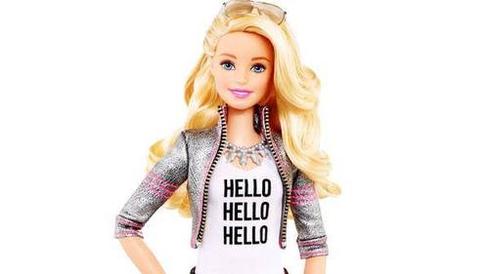You won't see children's dolls talked about much on InformationWeek. But we couldn't let Smart Barbie pass us by without a word.

Today's fashion doll is not your grandmother's Barbie. Nowadays, she comes equipped with WiFi, voice recognition, and access to data stored in the cloud.
Since 1959, the iconic Barbie doll has gone through multiple permutations as it evolved to reflect the fashions and expectations of each generation. Lately, that includes technology to enable conversations with the doll. And Mattel has discovered that a talking Barbie causes trouble. In the last generation, people objected to what Barbie said; now they object to what she hears.
In 1992, Mattel packed a computer chip loaded with 270 phrases into a plastic doll and introduced Teen Talk Barbie. Unfortunately, one of those phrases was "Math class is hard." That phrase came across as a negative reflection of girls' feelings about math. Responding to pressure from a number of groups, including The American Association of University Women, Mattel pulled the phrase from the doll's conversational options, leaving her with safer subjects, like dresses and boys.
Mattel is trying another angle on the talking doll, with what many are referring to as a "smart" Barbie. Earlier this year, at International Toy Fair in New York, it unveiled Hello Barbie. The doll is slated to launch this fall at a suggest retail price of $75. Hello Barbie is capable of responsive speech, courtesy of a voice recognition application and WiFi technology developed by ToyTalk.
As the CEO of ToyTalk wrote on the company's blog: "Barbie will talk with children about their aspirations, share their stories, and best of all, listen to and remember the things they say." The memory is not in the doll's plastic head, but in ToyTalk's cloud servers, which analyze the record of what children have said to the doll to hone the accuracy of the doll's responses.
That personalization can seem cool or creepy. The Campaign for a Commercial-Free Childhood (CCFC) takes a decided stance on the latter side. It has launched a petition drive aiming to get Mattel's CEO Christopher Sinclair to stop the doll from being marketed or sold. For one thing, the group argued, the doll's programming removes any imaginative play the child might develop. There's no need to invent dialog in your imagination when your doll speaks for herself. The group's primary concern, though, is that the data collected from children's confessions to a doll can be used to give marketers an unfair advantage. Think about all the personal information that can be gleaned about child behavior from the doll's recordings.
In the face of privacy concerns, according to the Washington Post, Mattel said Hello Barbie "conforms to all applicable government standards." It does so by informing parents of the data collected and its intended use. Parents are also able to set restrictions on topics and contribute their own data to inform Hello Barbie's conversations, which can be reported to them. Legally, parental control covers a child's privacy, but there is another concern that some have with talking dolls.
A couple of months ago, a talking doll called Cayla gained notoriety when her system was hacked and she started spewing profanity. Aware of that danger, ToyTalk has taken steps to secure the transmission of data from Barbie by limiting it to a secured TLS (HTTPS) network and not enabling a Bluetooth connection. A restriction on external apps is also supposed to make it more difficult to hack Barbie. But, of course, it's not impossible.
While the petition against Hello Barbie is picking up thousands of signatures, it's unlikely that Mattel will take this doll off the market. Ultimately, it's up to parents whether or not to buy a toy that uploads information about their child. Informed parents should be able to make their own decisions about whether or not "smart" toys are an intelligent choice for their children.
Would you buy your child Hello Barbie, or any other kind of "smart" toy? Do the benefits of being able to converse with an inanimate playmate outweigh the risks? Do you wish you had a conversational Barbie when you were growing up? Tell us all about it in the comments section below.
About the Author(s)
You May Also Like







